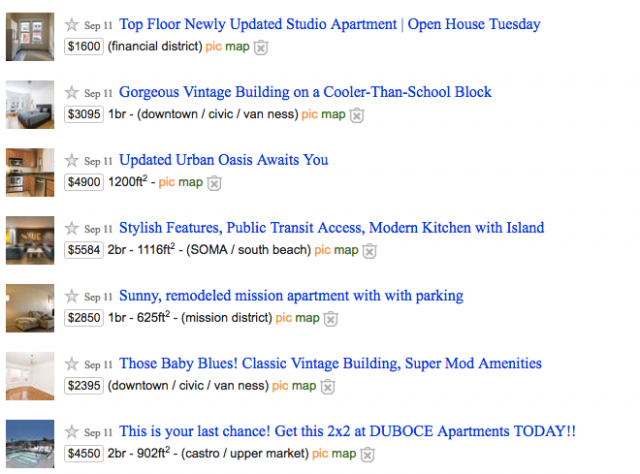Legislative package faces steep hurdles this week
by Brian Leubitz

The California housing situation is bad. Really, extremely bad in some places like San Francisco where housing affordability levels put families making over $100,000 into contention for affordable units. Getting housing at less than $2000/bedroom/month is really hard. I think we can all agree that is crazy. And across the state, there is a long-standing shortage of both market rate and affordable housing. That situation was not improved with the ending of the redevelopment districts a few years ago. While supply and demand cannot fix everything, we clearly need to build a lot of additional housing units (of every affordability level) across the state.
The Senate has a legislative package for that:
The two marquee measures — Senate Bill 35 from Sen. Scott Wiener (D-San Francisco) and Senate Bill 3 from Sen. Jim Beall (D-San Jose) — would force cities that have fallen behind on their state housing production goals to reduce some of the hoops they put in place to approve developments and would authorize a $3-billion bond to spend on low-income housing on the 2018 statewide ballot.
“What the bill does do is create actual accountability,” Wiener said of SB 35. “Because local control is about how you meet your housing goals, not whether you meet your housing goals.” (LAT – 6/30/17)
Much of the package passed one house already, but several of the bills in this package have faced stumbling blocks. Most notably, Sen. Toni Atkins is trying to pass a $75 fee on non-home sale real estate transactions, but the 2/3 requirement is giving a lot of power to Bakersfield’s Rudy Salas in providing the final vote. Though, he seems to have found something that would work for him by presenting a bill that added a low-income exception to the fee. And then there’s Richard Bloom’s bill to allow municipalities to require some number of affordable units:
Also late Friday, Assemblyman Richard Bloom (D-Santa Monica) changed his legislation, AB 1505, which would allow cities to force developers to set aside a certain number of homes in their projects for low-income residents. Brown has long opposed the policy, vetoing a similar bill in 2013 and saying the policy generally makes it harder to attract development to low- and middle-income communities.(LAT – 9/11/17)
The next week will decide the fate of several of these bills, though many will face some pretty tough scrutiny in Gov. Brown’s Horseshoe as well.

You must be logged in to post a comment.